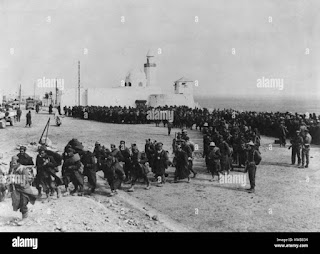Eighty years ago the British console themselves with a small win at the Benghazi sweespstakes
It was a measure of the western powers' desperation in the face of the dramatic success of the Japanese offensive against their colonial possessions in the south-west Asia region, that the British commander-in-chief in India General Wavell was appointed as supreme commander of ABDA (American, British, Dutch and Australian forces). The post had barely any military reality: none of the countries had any free reserves and there was no infrastructure to exercise unified command over the vast area concerned. Wavell never attempted to control General MacArthur in the Philippines and it is doubtful wheter the would have played the slightest attention.
The pendulum seemed to swing back in favour of the British in the western desert. After blocking Rommel's advance into Egypt with Operation Crusader they continued to advance into Libya. The 2nd South Africa Division retook the port of Bardia after a siege of a few weeks, capturing the garrison of 9,000, one quarter German and three-Quarters Italian. 1,000 British PoWs were freed. In reality Rommel attached little importance to Bardia and he was far from beaten. With hindsight, the operation was classed as just another episode in the "Benghazi sweepsakes" of alternating German and British pushes into Libya.
British commandos launched two more raids on Norway, one on Vagsoy and the other on the Lofoten Islands. They achieved tactical success despite unexpectedlyencountering a unit of German mountain troops, which happened to be resting from the Eastern Front. The raiders brought back local Quislings as prisoners and a good number of local men to join the Free Norweigan forces. The operations served to bolster British domestic morale but their true benefit was to reinforce Hitler's delusion that the British wanted to stage a major invasion of Norway: a dream of Churchill but never seriously considered by the military. The benefit of tying down German forces in Norway was, though, real.
In one of the most murky episodes of the Vichy regime, the body of the chief-of-staff to the interior minister was discovered, cut to pieces on a railway line. Both the victim, Yves Paringaux, and his chief, Pierre Pucheux, had been active in extreme right-wing politics before the war. Pucheux had been a key figure in the mass execution of hostages by the Germans in reprisal for murders of individuals in purported acts of resistance. Initially Vichy gave out that Paringaux had been murdered, but no full explanation has ever come to light.



Comments
Post a Comment